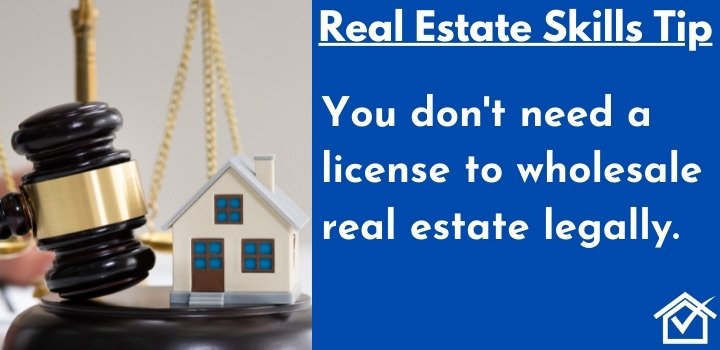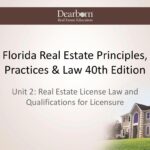Do You Need a License to Wholesale Real Estate? State-by-State Guidance & Actionable Steps

Understanding Real Estate Wholesaling and Licensing
Real estate wholesaling is a strategy where an individual, known as the wholesaler, enters into a contract to purchase a property and then assigns that contract to an end buyer for a fee. This method allows investors to earn profits without owning the property outright or making significant capital investments. However, a recurring question for aspiring wholesalers is whether a real estate license is required to legally wholesale properties in the United States. The answer depends on the state where you plan to operate, as regulations and enforcement vary considerably.
States That Require a License or Registration
In some states, a real estate license is required to wholesale properties, while others require a specific registration or impose certain conditions. For example:
-
Oregon
: The Oregon Real Estate Agency mandates that individuals who want to wholesale residential properties must register as a
Residential Property Wholesaler
unless they already hold a real estate Broker, Principal Broker, or Property Manager license. The registration process involves a criminal records check and a demonstration of trustworthiness and competency. While a criminal record does not automatically disqualify an applicant, full disclosure is mandatory, as failure to do so could result in denial of registration [1] . -
Philadelphia, Pennsylvania
: The city requires a
Residential Property Wholesaler License
for anyone whose business involves buying residential properties solely for resale or facilitating others to do so. This license is not required if you are a licensed real estate agent, attorney, investor who renovates properties, or if your intent is to rent the property. The license is issued by the Department of Licenses and Inspections, and the application process is available through the city’s official website [2] . - South Carolina : One of the strictest states, South Carolina requires all wholesalers to hold a real estate license in order to operate legally. This is intended to ensure that only those with a thorough understanding of real estate practices can participate, protecting consumers and ensuring ethical transactions [3] .
- Kentucky : Kentucky mandates that anyone facilitating the sale, purchase, or lease of real estate must be a licensed real estate agent or broker. This includes those engaging in wholesaling activities [3] .
- Illinois : Wholesalers must have a real estate license if they engage in more than one wholesale transaction per year, further professionalizing the wholesaling space [3] .
States Where a License Is Not Required-but With Important Conditions
Other states do not require a real estate license to wholesale properties, but there are often important legal conditions to follow to avoid inadvertently practicing real estate brokerage, which is regulated:

Source: laughingsquid.com
- Texas : No license is required to wholesale real estate as long as you do not engage in real estate brokerage and you disclose your equitable interest in the contract to all potential buyers. Texas law (Section 1101.0045) allows an individual to acquire and sell an option or assign a purchase contract without a license, provided full disclosure is made. However, those with a real estate license have more flexibility in marketing properties and can collect commissions instead of assignment fees [4] .
- Oklahoma : No real estate license is required to wholesale property as long as you act as a principal buyer and do not represent others in the transaction. Many wholesalers choose to get licensed anyway, as this provides access to the Multiple Listing Service (MLS) and allows collection of commissions rather than just assignment fees [5] .
- Nevada : Wholesalers do not need a license if they are not representing buyers or sellers directly. The focus is on transparency and not engaging in activities regulated as real estate brokerage [3] .
- Florida : The law is ambiguous, but wholesalers are required to act ethically and avoid fraudulent practices. It is strongly recommended to consult with a qualified real estate attorney or the Florida Real Estate Commission before engaging in wholesaling [3] .
Actionable Steps to Wholesale Legally
Whether or not your state requires a license, it is crucial to follow best practices to operate legally and ethically:
- Research Your State and Local Laws Begin by visiting your state’s official real estate regulatory agency website or searching for “real estate wholesaling laws [Your State].” Laws can change, so consult the most up-to-date resources. If you are in a major city, check for additional local requirements, such as Philadelphia’s wholesaler license [2] .
- Disclose All Interests Always clearly disclose your equitable interest in the property to all parties. Failure to do so may be construed as unlicensed real estate brokerage in many jurisdictions [4] .
- Consider Getting Licensed Even in states where it is not required, obtaining a real estate license can offer major advantages, such as access to the MLS, the ability to collect commissions, and increased credibility. It may also reduce legal risks [5] .
- Register If Required In states like Oregon, complete the registration process for residential property wholesalers, which may include background checks and proof of trustworthiness [1] .
- Work With Experienced Professionals Consult with a real estate attorney or local real estate board to ensure compliance with all applicable laws. They can provide guidance specific to your situation and jurisdiction.
- Document All Transactions Maintain thorough, accurate records of contracts, assignments, disclosures, and communications. This documentation is your best protection in the event of a dispute or investigation.
Potential Challenges and Solutions
Wholesaling real estate can be lucrative, but it comes with challenges:
- Legal Complexity: Laws change frequently. Always verify with your state’s real estate commission or regulatory authority before starting.
- Risk of Unintentional Brokerage: If you market a property you do not own or fail to disclose your interest, you could be accused of acting as an unlicensed broker. The solution is to market only your contract rights and always disclose your position [4] .
- Licensing Requirements: Some states and cities require licenses or registrations. While this adds steps, it can also provide legitimacy and access to more resources.
Alternatives to Wholesaling Without a License
If your state requires a license or wholesaling is heavily regulated, consider these alternatives:

Source: seawolfliving.com
- Partner with Licensed Agents: Work alongside a licensed real estate agent or broker who can handle the transaction legally and ethically, often for a share of the proceeds.
- Get Licensed: Many community colleges and real estate schools offer pre-license education. Check your state’s official licensing board for approved education providers.
- Focus on Investing: Consider traditional real estate investing by purchasing, improving, and reselling properties. In most states, this does not require a license if you are acting on your own behalf.
How to Access Official Resources and Apply for Licenses or Registration
The process and requirements for licenses or registration vary by state and locality. To get started:
- Search for your state’s “real estate regulatory agency” or “real estate commission.” Use these official sources for current rules and application forms.
- For city-specific licenses (such as Philadelphia), visit the official city website and search for “wholesaler license.”
- Contact your local real estate board or attorney for legal guidance and compliance advice.
- If you need to register as a wholesaler, expect to submit personal information, background checks, and proof of business activities.
Official websites are the best source of up-to-date information. Avoid relying on unofficial forums or unverified sources for critical legal guidance.
Summary & Key Takeaways
Whether you need a license to wholesale real estate depends entirely on your state and sometimes your city. Some states require a real estate license, some mandate registration as a wholesaler, and others have no such requirement provided you follow legal guidelines and disclose your interests. Always start by checking with your state’s real estate regulatory agency and, if needed, consult a qualified real estate attorney. If you choose to get licensed or registered, follow all legal steps carefully to maximize your opportunities and minimize your risks.
References
- [1] Oregon Real Estate Agency (2025). Registered Residential Property Wholesaler.
- [2] City of Philadelphia (2025). Get a Residential Property Wholesaler License.
- [3] Empora Title (2024). Is Wholesaling Real Estate Legal?
- [4] Real Estate Skills (2025). Is Wholesaling Real Estate Legal In Texas?
- [5] Real Estate Skills (2025). Is Wholesaling Real Estate Legal In Oklahoma?






